|
Interview and words by Dr. Rupali Gund and Dr. Pavel Ryzhov Edited by Dr. Rinki Saha, Dr. Laurie Herviou and Dr. Conchi Izquierdo Social media is a great technological gift for our generation that allows new ways of communicating and expressing one’s ideas with a wider audience in various formats. For our second session in the science communication series, INet-NYC interviewed Dr. Pavel Ryzhov who is the creator of an online platform and Youtube channel called Biofilm News and Biofilm Podcasts. This platform covers the latest news in healthcare and life sciences and interviews experts in the biotech industry. Here are the excerpts from the conversation with Dr. Ryzhov. 1. Please share your scientific journey and path to becoming a science communicator. I had a couple of different transition points in my career trajectory. I’m originally from Russia and after graduating high school there, I came to the US in 2010 to attend community college in San Diego, California. After that, I went to Germany to continue my undergraduate studies in a little town called Rheinbach, where I got my Bachelor’s in Applied Biology. I went back to San Diego for my PhD programme in Sanford Burnham Prebys Medical Discovery Institute where I worked in the membrane protein NMR field for several years and I graduated in Feb 2020. I moved to the East Coast in the fall of 2020 to start my current job as an Application Scientist at Applied Photophysics. I believe my communication skills definitely helped me excel in my career. For my current job, I communicated with the company’s representatives over many years as part of my networking and apply my communication skills in this role to interface with the scientists, our existing and prospective new customers and to share the new products that the company is making and troubleshoot if they are having issues using our instruments. 2. It’s great to see that you had an intercontinental work experience with multi-lingual team members and how effective communication helped you land in your current role. You have created Biofilm News, would you like to share what Biofilm News is and what inspired you to start this initiative? Thank you for bringing this up! The way to describe the inspiration behind Biofilm News is to say I watch a lot of youtube videos and I am inspired by watching various podcasts or people covering news and talking about the latest tech by developing movies. As a user of these virtual platforms, I was always curious about how to create such similar content. So during my PhD, I thought of creating some videos because I realized that there is not much content available exclusively for life science students. So, I started doing short videos on some of the topics that I used to read about on a daily basis. I had to put it on hold while I was trying to finish my PhD and when I got my current job. But this year I’m taking it rather more seriously and creating content for PhD students based on my own experience, interviewing people from the industry and covering biopharma industry news that I find interesting. 3. It is fascinating to see how you are using your past career experiences and communication skills to help the wider community of life sciences students navigate their scientific journey. Exactly, I feel PhD students can have tunnel vision and I'm the first to say I'm guilty of that because we're so focused on getting our research done. We do that at the expense of knowing the larger trends in the pharma industry or life science field as a whole. Finishing a Phd could be a daunting experience, so I believe sharing some advice with students as well as sharing some of the larger things that are going on in the industry is how I would like to help a younger group of scientists. 4. What kind of content are you developing for Biofilm News and where do you publish your work in social media? There are three things that I like to focus on- 1) talking about the latest news in the industry that I find myself either on Linkedin or elsewhere, 2) interview people from the biopharma industry to learn about their experiences, and 3) sharing my own PhD experience. As far as putting it out there, I put it on YouTube and occasionally I put it on some other outlets like LinkedIn, Facebook or other personal social media channels. 5. Did you take any special courses or training to develop videos or podcasts? What suggestions do you have for our audience if they want to start their own podcasts?
I believe that the best way to start is to actually look up youtube tutorials on selecting camera gear, formatting the podcast, editing, and publishing videos, and also there are resources on how to market your content. There is so much educational content that is completely free and available. That’s how I started. I also took "The Art of Science Communication" online course offered by the American Society of Biochemistry and Molecular Biology that helped me to learn how to present my research work to the lay audience. Also, I got many opportunities during my PhD to practice science communication by doing poster presentations and sharing my research progress to my lab peers, or by having casual conversations with my friends who are not from life sciences and responding to their questions about how vaccines work or about coronavirus, all of which helped me to hone my communication skills. 6. How do you balance your work with managing Biofilms? How much time/effort goes in developing this content? The short answer is it is hard. It's definitely a fine balancing act between the work that I do and this hobby, so I try to be creative and find ways to simplify making videos and minimize the time I spend on the individual project. Sometimes perfectionism comes in my way and I keep editing a video and never publish it because you are never satisfied with the final version. So, I like to streamline that process and make it as easy as possible. Sometimes I just publish and move on to the next one. I believe setting deadlines is important and sticking to the schedule helps me to continue developing my content. 7. Where do you see Biofilm News in the next few years? Are you open to collaborating with other scientists to contribute to Biofilm News? I am looking for a co-host for a specific iteration of my podcast where I discuss the latest news because it gets really boring talking to myself while discussing the news alone on a podcast. So I feel having somebody for a banter or exchange of ideas would be awesome. So anybody who might be interested can connect with me on LinkedIn. 8. Would you like to be a science communicator full time, or keep this as a hobby? It is an interesting question now that I’m thinking. I am doing science communication as an application scientist in a full time job, because my current role is all about communicating science effectively and I enjoy doing that a lot. And, my YouTube channel is just another outlet for that. I know I will be a Science Communicator for many years and my goal is to evolve and try to develop different kinds of content and reach a wider audience. 9. What advice do you have for those who want to begin their journey in becoming a science communicator? The best way to do that is just to start talking to somebody. I've done a lot of tutoring over the years that definitely helps with learning how to talk about complex topics that would make sense to another person. Consider taking some specific communication courses if you can. I think there are vast amounts of resources and tutorials that are available on YouTube or other platforms that are freely available that I explore to develop my content. I also use Davinci Resolve free software for video editing, Microsoft Powerpoint, Affinity Designer, Canva, and Adobe illustrator. I am happy to help and share some personal tricks, if somebody wants any advice from me. The entire team of INet NYC would like to thank Dr. Pavel Ryzhov for taking time to interact with us and sharing his exciting journey of becoming a science communicator. You can connect with Dr. Ryzhov via his LinkedIn if you want to collaborate or participate in Biofilm podcasts. To follow the latest healthcare/pharma news and interviews on Biofilm News, please subscribe to Dr. Ryzhov youtube channel here.
0 Comments
Interview and words by: Dr. Rinki Saha Edited by: Dr. Laurie Herviou, Dr. Rupali Gund and Dr. Conchi Izquierdo 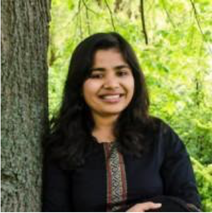 ‘One picture is worth ten thousand words.’ How many times you have thought if there was a diagram, I would have memorized this easily. Well, June is the month of effective science communication. We from INetNYC took this opportunity to launch our series where we will interview many science communicators from different backgrounds and different skill sets. This time we were lucky to interview the creator of Fuzzy Synapse – this platform explains various scientific topics in a fun and simple way. Fuzzy Synapse has covered various topics ranging from the theory of relativity while portraying the complex science behind microwave invention. 1. We would like to know the human behind the Fuzzy Synapse! I am Dr. Vinita Bharat, Neuroscientist at Stanford University. I finished my doctoral studies; being an International Max Planck Research School (IMPRS) Neuroscience student at European Neuroscience Institute, Goettingen, Germany. My research was focused on the exciting topic of how our brain learns and memorizes. Science has always been compelling to me, while doing my Ph.D. I understood the need of communicating science to the world. I started an online platform in 2017 called Fuzzy Synapse. With this platform, I create content to simplify complex scientific concepts in an easy and fun way. So, you can call me “the scientist who loves communicating science to broader audience.” 2. When did you illustrate something for science for the first time? Was there someone in particular who inspired you to start Fuzzy Synapse? I have always been keen on doodling; I would always love pictorially explaining myself any complex topic. I think visual illustration always makes a better impression on our minds. From our textbooks, we probably have forgotten many things, but some schematics are still in our minds. There is a very fun story that happened during my Ph.D which I would love to share. During those years, CRISPR was a new discovery, everyone in the scientific community was talking about it. I made some doodles explaining CRISPR technique. My friends and colleagues really liked it and encouraged me to post it on social media, and to my surprise, it really got a huge appraisal. That was kind of the starting point of my journey as a science communicator through Fuzzy Synapse. Fuzzy Synapse represented stem cell as "Swiss army knife” which basically holds the ability of multiple tools in one. To answer your second question, it’s very hard to pinpoint one artist as a role model given the variety of mediums people use to communicate science. From my initial days, Stempeers have given me great support and opportunity to grow my platform. I found amazing sci-comm artists through STEMPEERS. I love following and learning from each and every one’s art and way of science communication. To add a few more names, I enjoy science sketches, exemplary work from Dr.David Goodsell. Also, PHD comic series is something that makes me laugh every time.
3. Is there any exciting story behind the name Fuzzy Synapse? I want to give credit to my husband who coined this name for my platform. I think the connection between the world and science is fuzzy and being from a neuroscience background, connection means synapse. I think this name Fuzzy Synapse aligns very well with my interest and the mission of this platform really well. 4. The ratio between science communicators and scientists is not high: in your opinion, how should we tackle this issue? I think scientists should learn the art of communicating their science to the broader audience. Especially from this pandemic, we learned that we are not just fighting pandemic but also infodemic. Through science communication we should bring science and society closer. Describing the significance of your work without using jargon could be very difficult as we the scientists have no formal training in that. I think teaching effective science communication from the very start can help. I am working on curating a seminar series on effective science communication which might also help in this direction. 5. What software/applications are you using to work on your projects? When I started, I was simply using pen and paper to create illustrations. Now, I heavily use Procreate and Adobe illustrator to create all the artsy stuff. These softwares give more dimensions to my work but I feel the idea is the key. 6. How are you running the platform and how do you manage to balance your lab life and your passion side by side? I try to balance both sides. I aim to cover at least one scientific topic every week through Fuzzy Synapse. So far, I have covered around 170 topics through my art. I make sure to bring the science correctly, hence do my homework too before starting the idea. I also make a conscious effort to make my content more diverse and inclusive. Collaborating with amazing groups and individual contributors gives me a great opportunity to fine tune my ideas. I learned a lot in this whole process which has kept me motivated so far. I would say actually working in the lab brings a lot of ideas for Fuzzy Synapse. Let's say if I am running a Polymerase Chain Reaction (PCR) or working with stem cells, I think then to create illustrations on those topics. After a long day of work at the lab, thinking and creating these illustrations give me immense joy. I would say it’s hard keeping a balance between lab work and Fuzzy Synapse, but the oxytocin I get from this creation keeps me going. 7. What is the future for the platform Fuzzy Synapse? I am planning to launch a book series that will cover more scientific topics in greater detail. I am working on a book project called ‘draw your science’. Besides another ongoing series called “Draw your neuroscience” where I aim to make neuroscience fun and easy for all. I am aiming to soon launch a workshop series on effective science communication. I envision Fuzzy Synapse will be a collaborative platform for scientists and artists to collaborate. Be it through visual illustrations, art performances, podcasts etc., we will see an amazing amalgamation of both sides to communicate science. 8. What advice would you give to people who want to start with Science Communication? Just start, don’t complicate your thought process, don’t be hesitant. Please make sure to spread the right message through your content. It’s a learning process, so just put your ideas out. Collaborate with others in the field and keep learning and creating. To enjoy illustrations from Fuzzy Synapse follow her on Facebook , Instagram and twitter too! Words by: Dr Rebecca Caeser Edited by: Dr Lucie Yammine, Dr Vacha Patel and Dr Rinki Saha Women in science have long gone underappreciated. INet-NYC did our part to redress this by hosting a Women in Science month. We featured a female scientist’s story and thoughts on our blog and social media (twitter and instagram) every day for the month of March. We hope many of you walked away from it feeling inspired, relieved that things are changing already, yet still driven for more change. Here are three themes that stuck with us: Motivation One of the themes that ran through all of our interviews was our interviewees love of science. Dr Bhama Ramkhelawon (NYU Langone) spoke for many when she said that her motivation comes from performing “an experiment to address a question - and it works. Feels fantastic. Feels like the first bite of ice cream on a hot summer day”. Many also mentioned that their motivation is driven by a sense of doing something meaningful which is often fuelled by speaking to patients and/or their families. But several argued that doing great science is not enough to progress equality. Dr Linda Molla (Regeneron Pharmaceuticals) believes that we need to shift our thinking about how leaders within science are rewarded. Currently, individual successes are recorded, but we need to put more focus on “how they manage and help employees or trainees to develop to achieve their goals”. These efforts will be vital to achieving greater gender equity, and are often currently unrecognised. As Dr Molla says, addressing “ineffective management practices would overall create healthier academic lab environments and help retain women in science.” Several interviewees advised focusing on your productivity, rather than how many hours you put into a project. Dr Federica Valsecchi argued that "Being “workaholic” does not always mean being productive." A similar sentiment was shared by Dr Sandra Franco Iborra (New York Genome Center) who said that “one of the most dangerous rules is that you can’t have a work-life balance if you want to be a successful scientist”. We ought to let go of feeling guilty when not working 24/7. And Dr Itziar Irurzun Arana (AstraZeneca) had some good advice for staying motivated through adversity: “don’t be afraid of making the wrong choice, making mistakes is part of the path”. Family It’s no secret that women often feel a pressure to choose between starting a family and progressing their career. Dr Gayathri Srinivasan (Emory University) feels that “the roadblocks for women are that the biological clock and the tenure clock or climbing the corporate ladder are exactly at the same time. This makes for hard choices.” Yet, women should not feel like it’s either all science or nothing. Dr Elisa Venturini (Natera) gave some food for thought on this topic: “Mentors and colleagues who value our expertise will not make us choose. Finding that environment will not be easy, but we should not give up our dreams of starting a family, but rather we should focus on finding that workplace where we are valued even more because we have a family”. Our interviewees had some good tips on how to achieve a healthy work-life balance. In prioritising her work, Dr Lilian Lamech (Chemeleon) said “I often re-evaluate based on the needs of the coming weeks and make sure the goals are manageable. It’s also okay to say no." And as Dr Thu Huynh (Midwestern University) told us, “work-life balance means setting boundaries.” But they also argued for deeper structural changes, such as implementing better paternity and maternity leave, allowing for flexible work hours and affordable daycare for all. As Dr Hannah Meyer (Cold Spring Harbor) argues, women can’t fix equality on their own: “the burden of trying to make a change is often placed on the minority group, here women – this takes away from time that can be spent on research.” Visibility
One of the key obstacles to equality in science identified by our interviewees was visibility. Dr Karuna Ganesh (MSK) points out that “girls are steered away from STEM early on.” This lack of role models is damaging and leads to a shortage of women higher up the scientific career ladder. But role models don’t necessarily have to be celebrity scientists. As Dr Linda Molla (Regeneron Pharmaceuticals) said “If we want to impact change, each and every one of us needs to speak up in our workplaces”. Dr Gayathri Srinivasan (Emory University) agrees: “we will all have to come together as a society to improve women’s visibility in science”. Many suggested that we need equal representation and provide opportunities for junior/early career scientists. But to achieve this, there was a general consensus: we need male allies! Dr Alicia Perez Porro (CREAF) argues that “we need men to step down from manels, from all-men selection committees etc, and to fight with us for equal salaries, equal career opportunities, to take an active role for diversity and inclusion in STEM”. Lastly, a general advice that many would have given themselves if they were starting their career today was to look for mentors early on in their career! As Dr Triparna Sen (MSK) argued “The right mentor will guide you to seize opportunities, open doors for you, will be a sounding board as you make difficult career choices and will champion for you”. To dive deeper into all our female scientist life stories and thoughts on this topic, check out full interviews on our blog and also youtube channel! Dr Ariola Bardhi is originally from Albania. She moved to the US 12 years ago to pursue a college degree. She got interested in biomedical research and decided to attend graduate school in New York City. Her research focused on engineered immunotherapy for HIV treatment. During her PhD, Dr Bardhi co-founded INet-NYC in order to bring together and offer career opportunities to international scientists in New York City. She then got interested in careers beyond the bench and drug development process. She worked as a consultant for 2 years before she transitioned to a career in Medical Communication. She is currently a senior medical writer at BGB Group. 'You need to be truthful with yourself, understand what is important to you and then find avenues on how to make it work' 'Everybody is different. As long as you know what works for you, you are set up for success.' 'Be more open about the opportunities and enjoy the process instead of stressing out and focusing on what you are achieving.' Please, tell us a little bit about yourself: 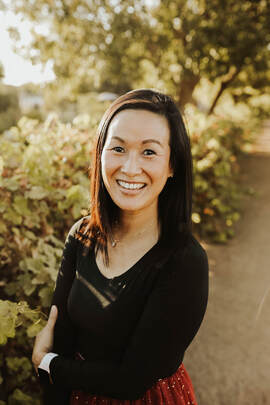 My CV tells a nice story about a girl who graduated with a Molecular and Cellular Biology degree from the University of Arizona, and moved to NYC to pursue her dreams of a PhD in Neuroscience. However, as Wei Ji Ma’s Growing up in Science series can attest- things on paper are rarely what they are in actuality. My real story is of a girl who had dreams of going to medical school, but lacked the credentials to do so straight out of college. I had a few key people take a chance on me, and with their help, I got into New York University’s Neural Science PhD program, where I ended up working in Dr. Eric Klann’s lab with an Italian postdoc who taught me everything she knew about neuroscience and to be honest, life. One constant of my education, was my interest in teaching, likely because of some of my own struggles as a student. As a result, I took it upon myself to seek teaching opportunities during my PhD and postdoctoral fellowship. From this, I was teaching assistant at NYU, and an adjunct assistant professor at Hunter College. I am certain this teaching experience is what helped me earn the position I am currently in, which is an Assistant Professor of Biochemistry and Molecular Genetics at Midwestern University. At Midwestern, I am involved with the delivery of team-taught Biochemistry courses to healthcare professional students, and I run a small laboratory studying the effects of stress on memory and neuroenergetics. I am also married to a fertility specialist, and we live in Arizona with our two children (3 & 1) and our mini-golden doodle. 'For me, work-life balance means setting boundaries [...] and also not comparing myself to other people.' In your opinion, what is the best way to maintain work-life balance? Right now, a healthy balance for me means being able to spend quality time with my young children, while also finding time for myself and my husband. Whereas, 10 years ago, it meant making time for happy hour, exercise, dating, and learning more about myself. Needless to say, “life” has carried many different meanings for me since I started my PhD in 2010. Because women panels these days focus a lot on how to balance marriage and children, I would like to emphasize that no matter what “life” looks for you, a healthy work-life balance is so important. It was equally important to me to find a healthy balance as a single woman in NYC as it is now as a wife and mom. For me, this means setting boundaries. Acknowledging that I have to balance feeling burned out one week and underproductive another. Working at the same speed for me, all the time, is untenable, so I accept that my productivity will ebb and flow while keeping my goals in sight. A healthy work-life balance for me also means not comparing myself to other people. One thing my dad taught me is that someone will always have more than you, and someone will always have less than you. In science this is especially true and comparing my successes and failures to someone else’s is a breeding ground for arrogance and resentment. 'The dialogue has to change where women can make decisions that best suit their lives, without any judgements regarding which societal stereotype that woman is fitting into or breaking- especially since this seems to be the case with men.' What are your thoughts on the pressure that women face in having to make a choice between having children and progressing their career? Too often, people assume all women want to get married and have children. Now, it is not uncommon to find women who have no plans for either OR have plans for one without the other. I think more broadly stated, women are judged for picking their passions and pursuing them full throttle. First, the dialogue has to change where women can make decisions that best suit their lives, without any judgements regarding which societal stereotype that woman is fitting into or breaking- especially since this seems to be the case with men. If we are successful in accomplishing this, I hope that a woman can make the decision to have kids and how it will impact her career will be a non-issue. At the end of the day, career expectations should be the same for a woman regardless of whether she is married, or has children, which relates to my opinion about work/life balance. I truly hope that people do not expect less of me because I have children, and I certainly do not expect more of my female colleagues who do not have children. In this regard, I hope that a woman will feel safe to make decisions regarding her personal life and not feel that it will affect her career whatsoever. I also recognize that I come from a privileged background where I have a supportive partner, the ability to afford childcare easily and a lot of family nearby. The absence of any one of these things would make parenting more challenging, and is a reminder of the amount of support a woman has to be in possession of in order to comfortably have children. 'The PhD and postdoc life can be lonely. [...] One of the secrets to success in this field, is feeling supported, even if it means finding the support on your own.' What advice would you give yourself if you were starting your career today? What would you say to encourage other women to persevere in their career path? If I could offer a piece of wisdom to another woman in STEM it would be this: The PhD and postdoc life can be lonely. Nobody else in the world is studying exactly what you are studying and doing it exactly the way that you are doing it. BUT, women are unified in our experiences, struggles, and wins. Make it a point find people, especially women who seemingly have everything you're working towards, and talk to her. If it’s an assistant professorship plus having children, talk to her! If it’s a K99/R00 in a high-powered lab, talk to her! If it’s a thriving lab at a PUI, talk.to.her!! Chances are, she experienced similar struggles as you, and can share what she did to overcome her challenges. One of the secrets to success in this field, is feeling supported, even if it means finding the support on your own.
If I could give my former self advice, it would be that progress is progress. Many of my proudest accomplishments are the ones that don’t come in the form of an acceptance, degree or certificate, but it was hard to see or appreciate at the time. Moreover, getting a PhD and pursuing a postdoc can feel strange during our mid 20-30s when friends are already advancing in their careers after graduating college. It gives the illusion that we are in stasis, but that couldn’t be farther from the truth. After all, it is a real job to work as a PhD or a postdoc, even though you’re pursuing a degree and potentially earning less than your friends. Ok, I might also reassure myself that yes, I can eventually raise two children, finish my PhD and teach medical students about the Kreb’s cycle. Please, tell us a little bit about yourself:
'Implementing changes to reward good leadership and provide constructive feedback to address ineffective management practices would overall create healthier academic lab environments and help retain women in science.' What do you think the roadblocks are to representation of women in science? How can we improve women’s visibility in science? I think better visibility and representation of women in science can be achieved by creating an environment that retains women that are interested in a science career. The current academic system does a great job at rewarding individual successes of leaders of labs as measured by number of high impact scientific papers published and number of grants rewarded, but I think that is not enough. Rewarding leaders for how they manage and help employees or trainees to develop to achieve their goals (within or outside an academic science) should also be rewarded and factored in tenure and promotion decisions. Deeper structural changes are needed within academia to incorporate 360-degree feedback to help develop leaders. Implementing changes to reward good leadership and provide constructive feedback to address ineffective management practices would overall create healthier academic lab environments and help retain women in science. 'If we want to impact change, each and every one of us needs to speak up in our workplaces.' What are your thoughts on the pressure that women face in having to make a choice between starting a family and progressing their career? In today’s world many scientists relocate away from families to continue their careers and this can make it challenging to grow a family while at the same time investing in one’s career. I am in favor of workplace changes to help women and men better balance career and family. Changes I am in favor of are providing affordable daycare centers for all families (no matter the income brackets), implementing paternity and maternity leave, allowing for flexible work hours and ability to work remotely when needed. If we want to impact change, each and every one of us needs to speak up in our workplaces. In the USA, additional layers of complexity are faced by immigrant scientists who are vulnerable to illogical and convoluted immigration policies. USA is very welcoming of foreign science talent but does not provide a proper timely path to permanent residency for those who want to stay in the USA to build their scientific careers and grow their families. Such unfriendly immigration policies not openly communicated by recruiting universities or companies add huge uncertainty on women’s career progression and their families. 'Build genuine relationships with others.' What advice would you give yourself if you were starting your career today? What would you say to encourage other women to persevere in their career path? Build genuine relationships with others. Invest time in surrounding yourself with a strong support system with many mentors and friends that can provide advice or be a sounding board during key decisions. Be involved with your community where you live, work, or study and try to support and constructively give back. Always pay it forward.
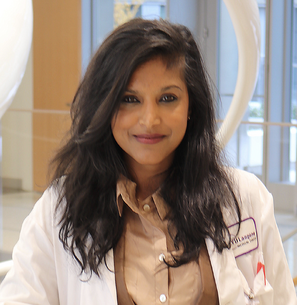 Tell us a little bit about yourself I am an Assistant Professor of Surgery and Cell Biology at New York University Langone Medical Center. I direct, mentor, train a team of diverse scientists to address specific questions regarding diseases affecting the vasculature such as aortic aneurysms. I am one of few women of minority background to hold such a position in a clinical department. You can read more about my research program and interest here: ncomms-10yr-ecr-ramkhelawon/ I won numerous awards including Académie de Médecine excellence thesis prize, UNESCO/L’OREAL women in science international rising talent award, the American Heart Association early career investigator award and recently the French-American Foundation Young Leaders award. I also participated in several events advocating for women in science. 'Women, as men should not have to MAKE the choice to focus on climbing their career ladder or decide to start a family (...) There is still a long road to ride.' What are your thoughts on the pressure that women face in having to make a choice between starting a family and progressing their career? Women, as men should not have to MAKE the choice to focus on climbing their career ladder or decide to start a family. Women, as men, should be able to do BOTH. Constraint of age, put unnecessary time pressure on women to conceive- this is unfortunately the biological effects of aging on the female body. Can we fix this? I think so. Science and technology has made so much progress that women can benefit from. Let’s imagine a scenario- all women in their twenties are offered the opportunity to freeze their eggs. Make a pause on aging through technology. Relieve the stress. Move on with their career. Decide to use the conserved eggs when they are ready OR if they would like to later on. Actually, whether to have children is the choice women should MAKE unpressured by time, social eye and biological differences between male and female anatomy. The reproductive system of women is very complex and understudied. Men and Women are biologically different. But alas, many of social, economical and medical decisions are still based solely on men neglecting female attributes. For example, for more than two decades now, there is an oral treatment for erectile dysfunction but we still don’t understand what is and how to treat endometriosis. It is not a fight between men and women-it is simply called - GENDER EQUALITY. There is still a long road to ride. I think we will probably reach equality between gender in science when we will start asking man the same question about family and career. What are the things that keep you motivated in your everyday life? Do you have any daily ritual that helps you stay consistently motivated and balanced? Being a scientist comes with its own trail of stress and challenges. But there are some unique moments that nourish my drive as a scientist. Those Einstein moments-at a microscale level. Where you get to perform an experiment to address a question-and it works. Feels fantastic. Feels like the first bite of ice cream on a hot summer day. But next minute you are thinking about the next question. I have similar passion about many unknowns and unexplained events in our everyday lives. My head is full of questions and I love to experiment. I am excited about new and many adventures in life. Managing, directing and mentoring the next generation of scientists cultivates my motivation. Developing ideas in a diverse and inclusive team sustains my enthusiasm. Promoting women and underrepresented communities in science is very gratifying. 'Promoting women and underrepresented communities in science is very gratifying.' What advice would you give yourself if you were starting your career today? What would you say to encourage other women to persevere in their career path? The same things I did a couple of years ago. Be strong, bold, brave, passionate, hard working, smart, learn the best from the best- be THE woman. Never let someone else tell you who you are. Learn to know and define yourself-all of yourself-from brain to feet. The fastest route is not always the straight one. Identify your strength and use it to push yourself forward and fight your weaknesses. More advice from junior investigators here: https://www.navbo.org/resources/lessons-learned 'Never let someone else tell you who you are. Learn to know and define yourself-all of yourself-from brain to feet. The fastest route is not always the straight one.' 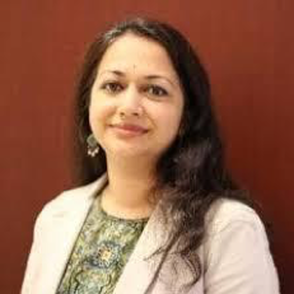 Tell us a little bit about yourself I am a scientist by training. I’m a Buckeye having received my PhD in Microbiology from the Ohio State University. I was part of the team that discovered the 22ndamino acid, Pyrrolysine. After my PhD I went on to pursue a post-doctoral fellowship at MIT. My research focused on fundamental science and understanding of protein synthesis mechanisms in Archaea. My career began as a scientist followed by technology licensing and business development at MIT and the Boston area. I later moved to Atlanta and joined Emory in 2014 as the industry partnership liaison for the Woodruff Health Sciences Center. In 2019 I became the Executive Director of the Office of Corporate Relations for the university. My role at Emory is to provide a “front door” for industry to connect with the right resources within Emory in order to further their objectives and support Emory’s research, education, and healthcare mission. collaborate with teams within and outside of Emory to determine synergies where partnerships can be initiated or expanded in order to solve real world problems and advance innovation. I am also a trained Indian classical dancer and singer. In my spare time, I continue to teach both artforms. 'Women have always needed to go more than the extra mile to rise above the background.' What do you think the roadblocks are to representation of women in science? How can we improve women’s visibility in science? I feel the roadblocks for women are that the biological clock and the tenure clock or climbing the corporate ladder are exactly at the same time. This makes for hard choices for a career in science for women. Women can shine in roles early in their careers if they have support with child care at home. Women have to take a hard look at the opportunities in front of them and make the right decision for their circumstances. There are relatively fewer women in leadership positions to serve as role models and that is yet another issue. Women have always needed to go more than the extra mile to rise above the background. I think men and women in the community need to understand this issue for the sake of their wives, sisters, mothers, and daughters. They need to mentor, advise, and nominate women they know to leadership positions. I feel saddened that even in this day and age we still need to be talking about unconscious biases and the inequities between men and women. We will all have to come together as a society to improve women’s visibility in science. Encouraging education in S.T.E.M.is a key first step. I feel that the government and employers need to take appropriate steps to help remove obstacles in the path towards success for women in science. Government should also put in place inducements during elementary and middle school education for girls to explore the world of science. 'We all have to come together as a society to improve women’s visibility in science' What are your thoughts on the pressure that women face in having to make a choice between starting a family and progressing their career? The pressures that women face in having to make a choice between starting a family and progressing their career is immense. When women choose to start a family while working full time, they have to take a break from their careers to care for their young children. This coincides with the stage in their careers when they need to be giving 150% of effort to climb up the ladder. This dichotomy is one of the critical reasons for women lagging behind in careers since they are usually the primary caregivers for the young ones in their family. I always remember the saying “it takes a village to raise a child” and that is absolutely true for women and their careers. Society in the U.S. is designed for women to take a back seat with their careers when raising children. It starts with daycare costs and then to how k-12 operates. All school events occur during the work hours and as a working woman it is hard to make the choice of attending the events or not. As children grow older it gets better but there needs to be a support system that is lacking here to support women in S.T.E.M. Most of the S.T.E.M. careers require women to be physically at work and that adds to the burden. Careers in computer science, informatics, and public health, epidemiology are areas of S.T.E.M. where physical presence at work is not critical. Careers in these areas of science may be worth exploring for young women. 'The pressures that women face in having to make a choice between starting a family and progressing their career is immense.' What advice would you give yourself if you were starting your career today? What would you say to encourage other women to persevere in their career path? I am very passionate about science and research. I still get goosebumps when I read research papers that show breakthroughs in science and wonder what life as a scientist could have been for me. I would tell my younger self other than enjoy the work that you do, take initiative and make changes to your career path at appropriate times, especially when you know you have outgrown a role. Be adventurous and explore new opportunities as they arise (or create new paths). 'Be adventurous and explore new opportunities as they arise (or create new paths).' 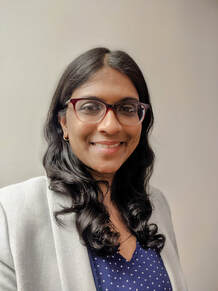 Tell us a little bit about yourself I’m currently a Biochemist at Chemeleon, a small biotech start-up in Brooklyn that is building rapid, easy-to-use colorimetric sensors for disease biomarkers and drugs of abuse. I moved to the US from India to get a degree in Biochemistry at Denison University, followed by a PhD in Microbiology at the University of Texas at Austin. I am passionate about protein and RNA folding as well as understanding how cellular organelles maintain their function under stress, which I was lucky to pursue during my time as a postdoc at Memorial Sloan Kettering Cancer Center. Over my academic career, I’ve had the opportunity to work in several fields ranging from structural and RNA biology to cancer biology and now really enjoy combining this expertise towards the development of biosensors. What do you think the roadblocks are to representation of women in science? How can we improve women’s visibility in science? Growing up I assumed most scientific discoveries were done by men and learnt very little about the contributions of women to different scientific disciplines. Bringing these contributions to light in classrooms to highlight that women researchers were also making critical discoveries all through history and discussing the unique challenges they faced would be of great value. Having more young women scientists engaging with students in classrooms and answering important questions posed by the media is also important to help fight the current stereotype of the scientist. 'Highlight that women researchers were also making critical discoveries all through history and discussing the unique challenges they faced would be of great value.' In your opinion, what is the best way to maintain work-life balance? It’s important to be clear what your priorities are in both your career and personal life and dedicate your time accordingly. These priorities can change often, especially in a start-up, so I often reevaluate based on the needs of the coming weeks and make sure the goals are manageable. It’s also okay to say no sometimes and be clear about what can be reasonably accomplished within a certain time frame in order to manage expectations. 'It’s also okay to say no sometimes and be clear about what can be reasonably accomplished' What advice would you give yourself if you were starting your career today? What would you say to encourage other women to persevere in their career path? Reach out and join communities around you that share common interests, whether it’s science policy, STEM outreach, activism or entrepreneurship groups. It will help give you insight into how you enjoy engaging in science both in your career and personal life as well as provide you with a strong supportive network of mentors. 'Reach out and join communities around you that share common interests (...) It will help give you insight into how you enjoy engaging in science' 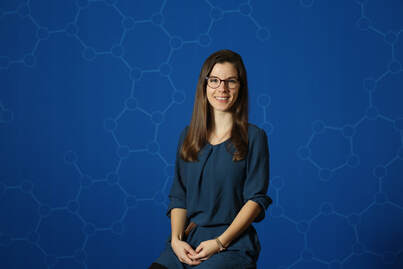 Tell us a little bit about yourself I moved to Long Island in 2019 to start my own research lab as a Fellow at Cold Spring Harbor Laboratory. We study how the immune system distinguishes between self and non-self to effectively fight infection and prevent autoimmune diseases. I originally trained in molecular biotechnology with a wet-lab focus on synthetic biology and immunology. For my PhD I switched to computational biology, ‘picking up’ math and statistics on the way, to develop models for analyzing high-dimensional phenotype data and association analysis of human cardiac morphology data. Cold Spring Harbor Laboratory hired me as Fellow directly after my PhD. This faculty position uniquely allows me to bring together my long-standing interest in immunology with my skills in high-dimensional data analyses and statistical methods in my own independent research group. We develop new experimental and computational approaches to understand how gene expression heterogeneity is regulated during T cell development in the thymus. What do you think the roadblocks are to representation of women in science? How can we improve women’s visibility in science? Many of the issues on representation of women in science have been discussed for many years, long before I became a scientist myself. It seems like the issues are known, but discussions often stay theoretical without practical impact. Worse even, the burden of trying to make a change is often placed on the minority group, here women – this takes away from time that can be spent on research or other ‘productive’ efforts, putting women in a further disadvantage. We need male allies on all levels, direct peer to peer support and, importantly, allies in leadership positions. We need leaders to fully acknowledge the issues of underrepresentation and obstacles and need their full commitment to bring about practical change. This includes not only transparent recruitment efforts but also creating and establishing supportive work environments and equitable opportunities. In your opinion, what is the best way to maintain work-life balance? Work-life balance means different things for different people. So first, find out what it means for yourself and determine your priorities – not what you think other people expect. How flexible do you want to be and how flexible can you be with your responsibilities at home and at work? I found these answers for myself and use them to establish boundaries. This includes prioritizing projects, learning (still in the progress) to say ‘no’, and learning (also still in progress) not to feel guilty when I cannot stick to my own rules. What are the things that keep you motivated in your everyday life? Do you have any daily ritual that helps you stay consistently motivated and balanced? I do not have a daily ritual per se – I try not to set too many additional ‘must do’s’ that I feel bad about when I don’t manage to do them. In the past half a year, I’ve enjoyed daily online yoga classes. Depending on the intensity level, it’s either a great exercise session or meditative. As I do it first thing in the morning, it is a great way to start the day before work. What advice would you give yourself if you were starting your career today? What would you say to encourage other women to persevere in their career path? Trust your instincts, have confidence in your own abilities, don’t compare yourself to others! The latter has been a crucial learning point for me and is something that I still have to tell myself on a regular basis. The further you get in your career, the less constant feedback you’ll receive. Find peers and colleagues in similar positions to share the good and bad and form peer-to-peer mentorship. 'Trust your instincts, have confidence in your own abilities, don’t compare yourself to others! ' |
Archives
May 2025
Categories
All
|
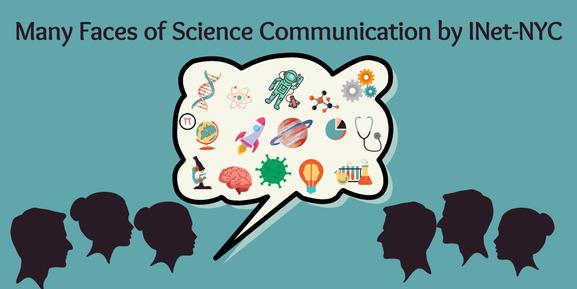

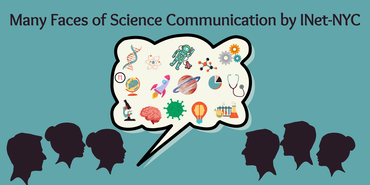
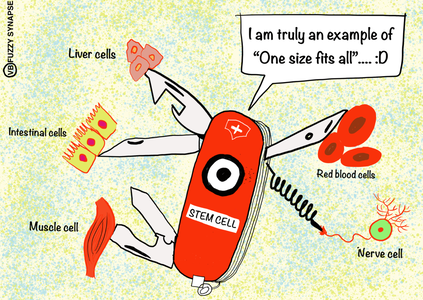
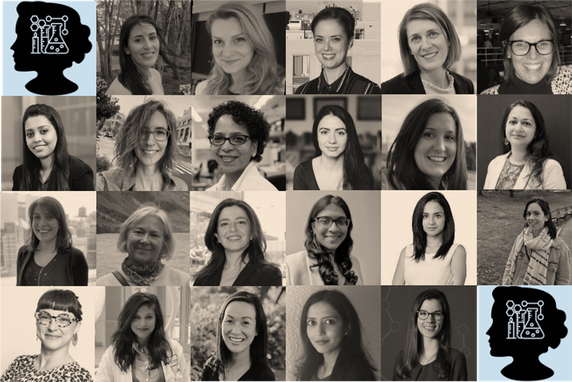
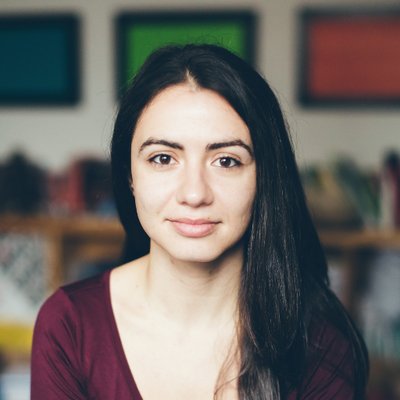
 RSS Feed
RSS Feed